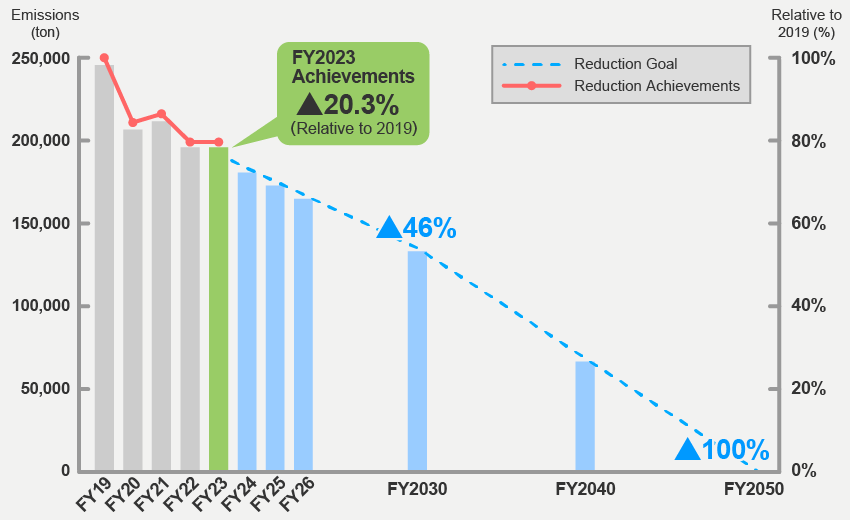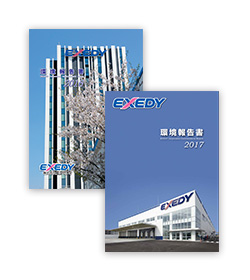Sustainability
EXEDY Group's Sustainability Activities
Environmental Performance Data
At EXEDY Group, we proactively implement measures to reduce CO2 emissions and waste in our products and the production process.
Long-term goals (~FY2050)
Item |
Target Range |
Base Point |
FY2030 |
FY2050 |
|---|---|---|---|---|
NET GHG Emissions Reduction |
Group |
FY2019 |
▲46% |
▲100% |
Short and medium-term goals(~FY2026)
Item |
FY2023 |
FY2023 |
FY2024 |
FY2025 |
FY2026 |
|---|---|---|---|---|---|
NET GHG Emissions Reduction |
▲23.25% |
▲20.7% |
▲26.5% |
▲29.75% |
▲33.0% |
※The target range and the reference point are the same as those of the long-term goal.
NET GHG Emissions Reduction

2023 Results and 2024 Goals
Item |
FY2023 |
FY2024 |
|
|---|---|---|---|
The Goal |
Achievements |
The Goal |
|
NET GHG Emissions Reduction |
1)CO2Emissions |
1)CO2Emissions |
|
Reducing Industrial Waste Emissions |
Basic Unit |
Basic Unit |
|
- *The CO2 conversion factor uses the CO2 conversion factor for each electric utility (https://ghg-santeikohyo.env.go.jp/calc/denki/)
Amount of CO2 and Waste Discharged (Total and per Basic Unit)
Amount of CO2 Discharged *1 (Total and per Basic Unit *2) (2019 Base Year )


- *1The CO2 conversion factor uses the CO2 conversion factor for each electric utility (https://ghg-santeikohyo.env.go.jp/calc/denki/)
- *2Basic Unit: CO2 emissions or industrial waste ÷ sales (in hundreds of millions of yen)
Amount of Waste Discharged (Total and per Basic Unit) (2019 Base Year)















